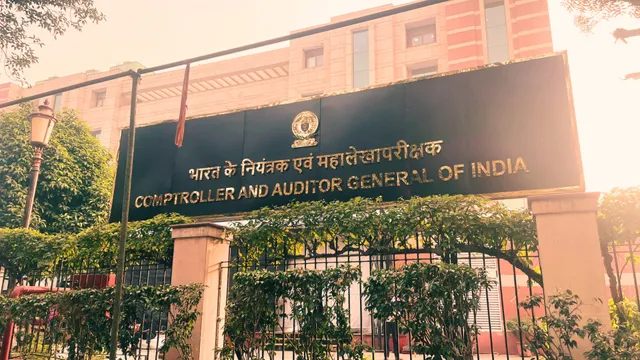The Supreme Court has issued a notice to the central government concerning the current process of appointing the Comptroller and Auditor General of India, following a public interest litigation that challenges the existing system.
The PIL, filed by the Centre for Public Interest Litigation , advocates for the establishment of an independent selection committee to oversee the appointment of the CAG. This proposed committee would include the Prime Minister, the Leader of the Opposition, and the Chief Justice of India. The petitioners argue that the current method, dominated by the executive branch, compromises the independence of the CAG, a constitutional authority responsible for auditing government expenditures and ensuring financial accountability.
During the hearing, advocate Prashant Bhushan, representing the CPIL, expressed concerns about the diminishing autonomy of the CAG. He highlighted a noticeable decline in the number of audits conducted, particularly in states governed by the ruling party at the Centre. Bhushan cited Maharashtra as an example, alleging that audits in such states were being deliberately delayed or stalled. He emphasized that while the Constitution provides safeguards against arbitrary removal of the CAG, the appointment process itself lacks transparency and independence, potentially undermining the institution’s effectiveness.
The Supreme Court bench, comprising Justices Surya Kant and N Kotiswar Singh, acknowledged the petitioners’ concerns but also underscored the constitutional protections afforded to the CAG. Justice Kant remarked, “We have to trust our institutions.” He further noted that Article 148 of the Constitution ensures the CAG’s independence by providing safeguards similar to those for Supreme Court judges, particularly concerning removal procedures. The bench questioned whether the judiciary should intervene in the appointment process, especially when the Constitution grants the executive the authority to appoint the CAG.
The petition draws parallels between the CAG’s appointment process and those of other key constitutional positions, such as the Chief Election Commissioner and the Central Vigilance Commissioner . In previous rulings, the Supreme Court has advocated for independent committees to oversee these appointments to preserve institutional autonomy and prevent potential conflicts of interest. The CPIL contends that a similar approach should be adopted for the CAG to bolster its independence and ensure unbiased auditing of public funds.
The court’s decision to issue a notice to the government signifies its willingness to scrutinize the existing appointment mechanism. This move opens the door for a comprehensive examination of whether the current system aligns with the principles of transparency and accountability enshrined in the Constitution. The government’s response to this notice will be pivotal in determining the future course of action regarding the appointment process of the CAG.
The CAG plays a crucial role in India’s democratic framework by auditing government receipts and expenditures, thereby ensuring that public funds are utilized efficiently and for their intended purposes. The institution’s reports have historically been instrumental in uncovering financial irregularities and promoting fiscal discipline. Therefore, the independence of the CAG is paramount to maintaining public trust in the government’s financial operations.
This legal challenge comes at a time when debates about institutional autonomy and checks and balances within the Indian democratic system are gaining prominence. The outcome of this case could have far-reaching implications for the governance framework, potentially setting precedents for how key constitutional appointments are made in the future.




 Gadkari and Fadnavis Call for Peace
Gadkari and Fadnavis Call for Peace 